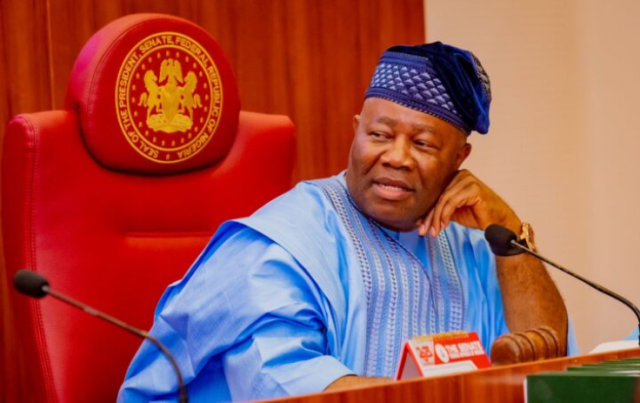ABUJA, Nigeria —The President of the Senate, Godswill Akpabio and the Archbishop of Sokoto Diocese, Bishop Mathew Kukah have warned against religious killings in Nigeria, advocating for peace to aid meaningful growth and development.
Kukah, who called for the end to killings lamented that Nigerians are dying daily in the name of religion and politics.
They made the appeal at the ‘High-Level Discourse on Religion and Democracy’ programme organised by the National Peace Committee in Abuja.
The NPC is an initiative to foster peace and national unity with a former Head of State, Gen Abdulsalami Abubakar, as its chairman.
Speaking at the event, Akpabio, who was represented by former Edo State Governor, Adams Oshimohole, said a nation with a huge population like Nigeria should not be struggling with religious bigotry.
He said, “As we gather here, we recognise that religion has the power to be a tremendous force for good. It can unite us and foster understanding and respect among our diverse communities. We must embrace our differences and celebrate our shared humanity.
“Each of us has a fundamental right to worship freely and it is our collective duty to protect that right by ensuring that no one is marginalised or persecuted for his choice.
“But we must confront the harsh reality. Too often, we have seen religion misused as a tool for division and strife.
“The dangers posed by violence and intolerance threaten to undermine our democratic values and the principles that hold our society together.
“We cannot ignore the pain and suffering caused by religious conflicts in the world. As Mahatma Gandhi said, an eye for an eye only ends up making the whole world blind.”
Kukah affirmed that there was a need for the country to have a moral foundation on which it could build against societal evils brought about by religious conflict.
He said, "it was morally wrong for anybody to take the life of a fellow human in the name of fighting for religion.
“In the name of democracy and religion, Nigerians are dying daily. So, something must be wrong.
“In the last 30 years, one of the legacies of the military was the demolition of the role of intellects. It was a time when General Babangida accused members of the academic community of teaching what they were not paid to teach.
“Therefore, helping ordinary Nigerians to think became a crime. And we have not recovered yet from that legacy. The result is that we are finding this political space occupied by all kinds of people.
“How does it happen that an individual can kill a fellow individual on the ground that ‘you have allegedly sinned against my religion.’
“People are being killed. It happened in Sokoto with the case of Deborah. Not long after that, it happened again to a Muslim. And then people started saying to me ‘So, it is not (restricted to) only you Christians?
“It is the same perverted interpretation of religion. The circumstances don’t change because it is happening to Muslims too.”
Kukah, however, harped on the need to chart a pathway to make religious leaders understand that they have a responsibility to deliver on their campaign promise to the nation.
On his part, the Ambassador-Designate of the European Union to Nigeria and ECOWAS, Gautier Mignot, stated that the EU remained steadfast in its mission to promote global peace.




















